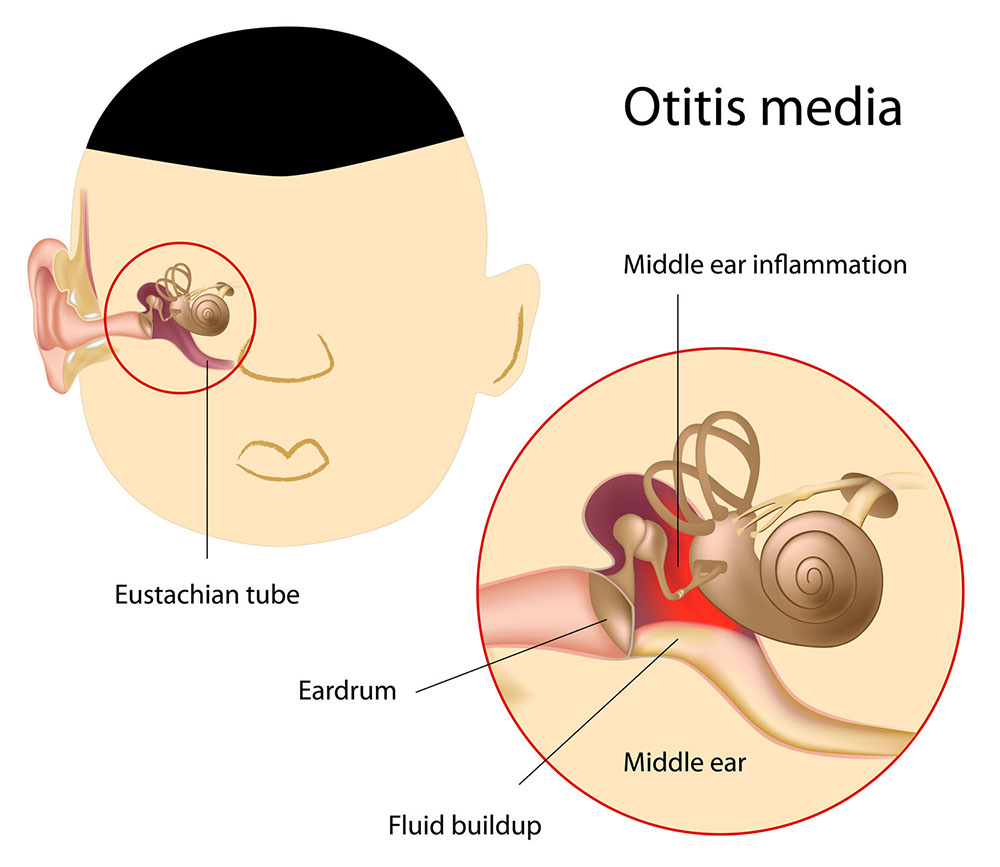Otitis Media in Adults: Symptoms, Treatment, and Prevention – By Dr. S R Agrawal

Introduction
Otitis media, commonly associated with children, is not an ear condition exclusive to childhood. Dr. S R Agrawal, an expert in otolaryngology, highlights the often overlooked issue of otitis media in adults in this informative article. We will explore the symptoms, treatment options, and prevention strategies for this condition that can affect people of all ages.
Understanding Otitis Media in Adults
Otitis media, a term that translates to “inflammation of the middle ear,” can affect adults as well. Unlike the acute ear infections that frequently afflict children, otitis media in adults often presents differently. Here are the key aspects to understand:
- Causes: In adults, otitis media can result from various causes, including upper respiratory infections, allergies, sinus infections, or exposure to irritants like tobacco smoke and pollutants.
- Types: Otitis media can manifest as acute otitis media (AOM), with sudden and severe symptoms, or chronic otitis media (COM), characterized by persistent or recurrent ear problems.
- Symptoms: Common symptoms in adults include ear pain, fluid drainage from the ear, hearing loss, and a feeling of fullness in the ear. These symptoms can be mild or severe and may be associated with fever.
Treatment Options
Effective treatment for otitis media in adults requires a comprehensive evaluation by an ear specialist like Dr. S R Agrawal. The choice of treatment depends on the type and severity of the condition:
- Pain Management: Pain relief is often a priority. Over-the-counter pain relievers or prescription medications can help alleviate discomfort.
- Antibiotics: If the infection is bacterial, antibiotics may be prescribed to clear the infection. Chronic cases might require longer courses of treatment.
- Ear Tubes: For recurrent or severe cases, especially in chronic otitis media, ear tubes (tympanostomy tubes) may be recommended. These tiny tubes allow ventilation in the middle ear, preventing fluid buildup and recurrent infections.
- Home Care: Patients can take steps to alleviate symptoms at home, such as applying warm compresses and maintaining proper ear hygiene.
- Avoiding Irritants: Preventing exposure to irritants like smoke and pollutants can help reduce the risk of ear infections.
- Allergy Management: Managing allergies is crucial for individuals with a history of otitis media related to allergic reactions.
Prevention Strategies
While it’s not always possible to prevent otitis media entirely, certain strategies can significantly reduce the risk, especially in adults:
- Maintain Good Hygiene: Keep your ears clean and dry to prevent bacterial and fungal growth.
- Manage Allergies: Allergies can contribute to ear infections. Managing allergies through medication and environmental changes can help reduce the risk.
- Avoid Smoking: Quit smoking, and avoid secondhand smoke, as it can irritate and damage the ear.
- Stay Up-to-Date with Vaccinations: In some cases, vaccinations like the flu shot can help prevent upper respiratory infections that can lead to otitis media.
- Practice Good Ear Care: Be cautious with ear cleaning. Avoid inserting objects into the ear canal, as this can damage the delicate structures.
Conclusion
Otitis media in adults is a condition that demands attention and proper care. Dr. S R Agrawal’s insights into the symptoms, treatment options, and prevention strategies provide a valuable resource for adults experiencing ear issues. If you suspect otitis media or are experiencing ear pain, drainage, or hearing loss, seeking prompt medical evaluation is crucial. Remember that timely diagnosis and treatment can make a significant difference in managing this condition and preserving your ear health. With proper care and awareness, adults can take steps to reduce the impact of otitis media on their daily lives and maintain healthy hearing.
For more info. please visit : https://www.ahrihospital.com/



